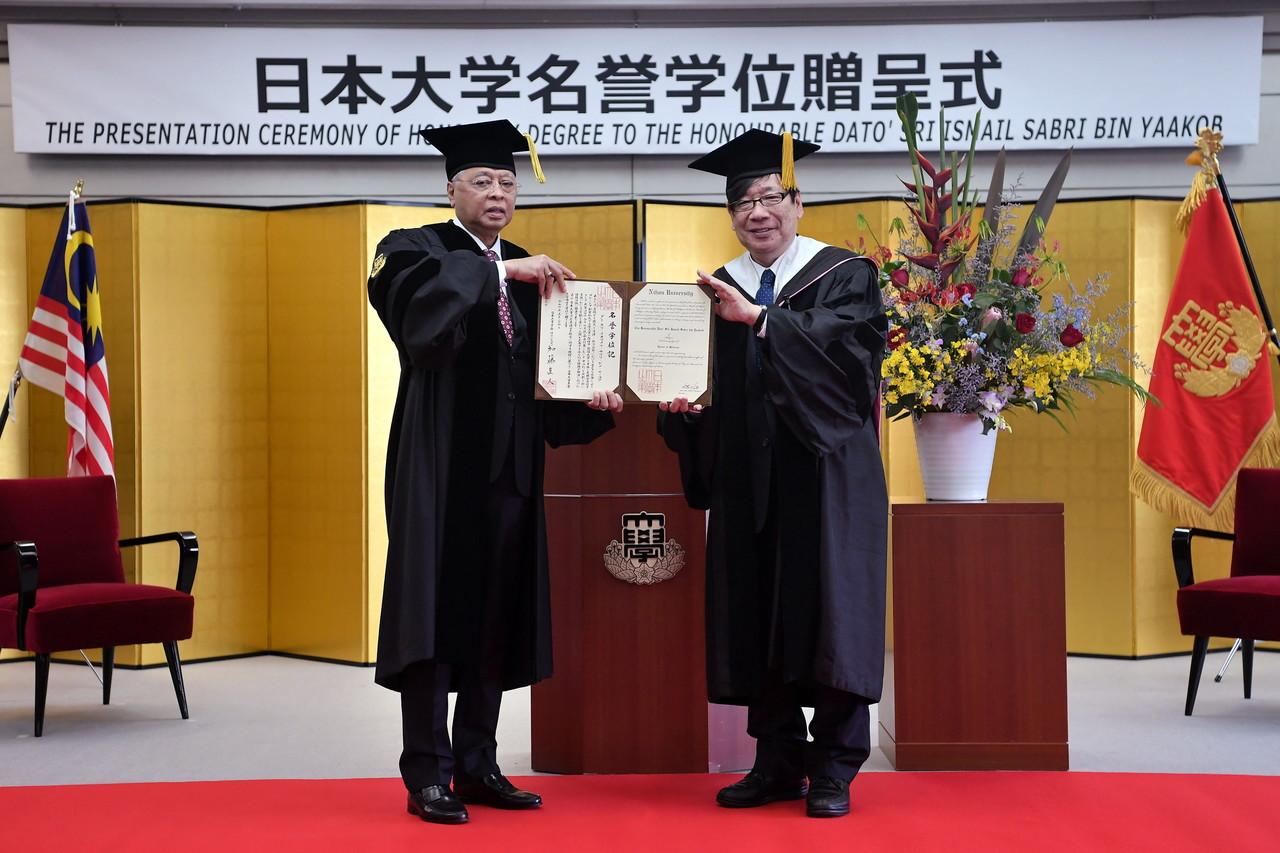PM receives honorary medical doctorate from Japan university
The honorary doctorate was awarded in appreciation of his efforts and contributions in the fight against Covid-19.
Prime Minister Ismail Sabri Yaakob was today awarded an honorary doctorate in medicine by Nihon University, one of the oldest private universities in Japan, in appreciation of his efforts and contributions in the fight against Covid-19.
Ismail received the honorary doctorate from Nihon University president Dr Naoto Kato at the university in Itabashi, one of the cities in the metropolis of Tokyo, during his six-day official working visit to Japan.
Expressing his appreciation for the honorary degree, Ismail said it was not only for him but for the entire Malaysian Family which had stood in solidarity with the government in facing the pandemic.
“Indeed, the award is a great recognition not only for me but for the entire Malaysian Family – we have proven our ability to deal with the Covid-19 pandemic in our own way,” he said.
Ismail said when the pandemic was declared in early 2020, he was entrusted, as the defence minister at the time, with the responsibility of leading the security cluster and chairing every special meeting of ministers in the fight against Covid-19.
From then on, he said the country’s strengths and assets were mobilised together with government agencies, including health and security forces, as frontliners, in an integrated effort to combat the threats of the pandemic.
“The war against Covid-19 is a big and challenging one,” he added.
On Malaysia’s experience in fighting the pandemic, Ismail said all of the factors that could lead to the spread of Covid-19 had been identified and promptly tackled.
He said the government had to act sternly at the early stage by imposing the movement control order (MCO), during which time the people were not allowed to leave their homes except for important or urgent matters.
“We are fighting an invisible enemy which is all around us. Every war must be won and the lives of the people of the Malaysian Family must be saved,” he said.
Ismail also said that Malaysia was close to winning the war, adding that this was proven by the reopening of its international borders on April 1 and the relaxation of most of its SOPs for Covid-19 from May 1, including the abolishment of physical distancing and the wearing of face masks only in indoor settings, which also allowed all economic sectors to fully reopen.
“This is the result of an effective health strategy and the implementation of the MCO. The full support of the people also enabled us to flatten the Covid-19 infection curve,” he said.
Ismail said Malaysia was also recognised by several international agencies such as Bloomberg and Nikkei as among the top five nations in the world to have succeeded in controlling the spread of the pandemic.
Meanwhile, Kato in his citation acknowledged that Ismail had played a central role in response to the Covid-19 pandemic and had given top priority to the people’s life and health.
This contributed significantly to the building of trust in international medical collaboration and improvement of technology in remote diagnosis and treatment as well as functional recovery training, he said.
“Such achievements are highly regarded by the people of Malaysia,” said Kato.
Subscribe to our newsletter
To be updated with all the latest news and analyses daily.
